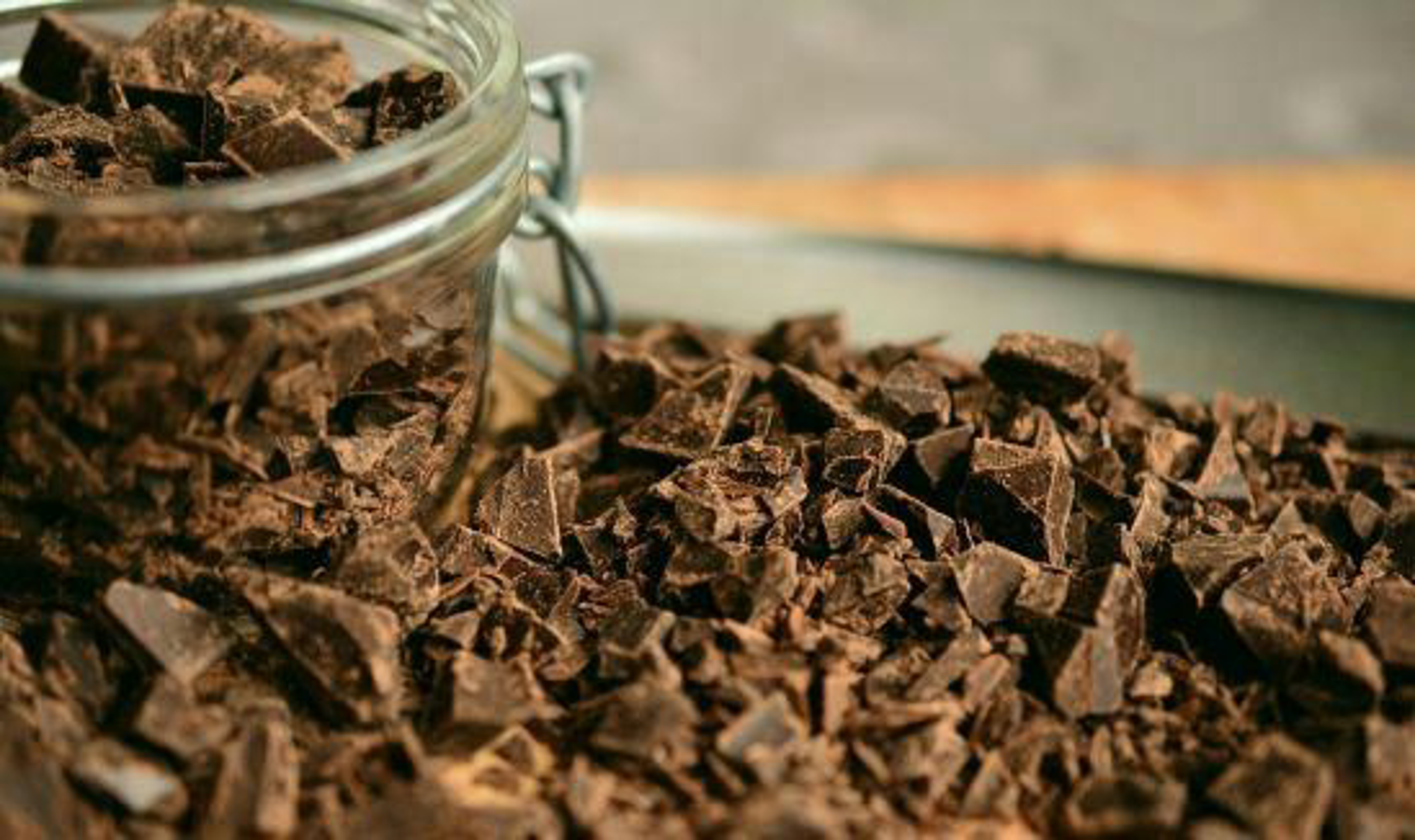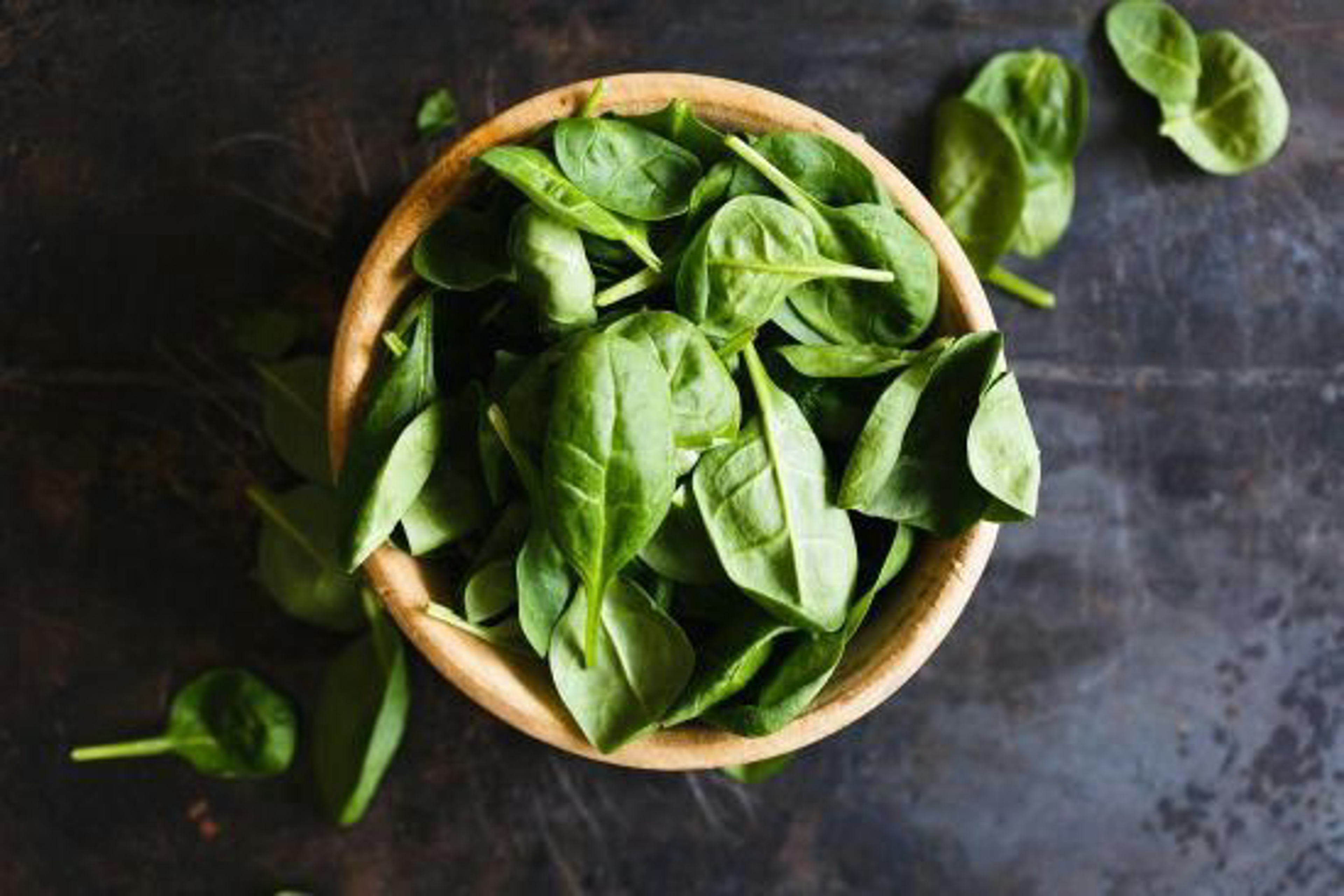What can dogs not eat? Toxic warning!
Dog guides Health
The way to someone’s heart is through their stomach! And people like to share everything with their best friend. But dogs are an exception. In this case, food is not something you can necessarily share! Even if your dog is giving you that irresistible, super cute, affectionate, pleading look ...
There are some things man’s best friend is not allowed to eat. This is because certain foods are highly toxic for dogs and can even be fatal! What can dogs not eat, and which snacks should you avoid sharing with your loyal companion? Here you will find answers to the most frequently asked questions about this topic.

Can dogs eat chocolate?
This sweet comfort food makes people happy – but chocolate is absolutely toxic for dogs! This is because chocolate contains theobromine, and this ingredient can only be broken down very slowly by dogs. Their metabolism works in a completely different way to humans.
Even tiny quantities of chocolate can be toxic for dogs. Depending on the amount of chocolate eaten and its cocoa content, the symptoms of chocolate poisoning in dogs can range from a slightly upset stomach to seizures with fatal consequences. The severity of the poisoning is not just related to the amount eaten – the cocoa content is also crucial.
The higher the cocoa content, the more toxic the effect for your dog. Dark chocolate varieties and cooking chocolate are particularly dangerous for dogs as they contain a larger quantity of theobromine (cocoa) than either milk chocolate or white chocolate, for example. For this reason, you should never leave a half-eaten bar of chocolate lying around, or store chocolate in a place that is accessible to your dog!
Can dogs eat cheese?
Milk products are not toxic for dogs. However, consuming these foods can cause problems, particularly as a dog gets older. Many dogs are affected by lactose intolerance as they age because they lack the enzyme lactase, which helps them digest the sugar found in milk (lactose). The dog may suffer from vomiting or diarrhoea in reaction to milk products like skimmed and whole milk, quark and yoghurt due to the high levels of lactose found in these dairy products. For younger dogs, moderate quantities of milk products are permitted – but you will need to monitor your dog carefully to ensure these foods are tolerated because some dogs are born with a lactose intolerance. Unlike other milk products, most kinds of cheese contain relatively little lactose and thus are generally well tolerated in small quantities by dogs.

What fruit can dogs eat?
Fruit can enhance the diet of omnivorous dogs – it contains vitamins, minerals and vital fibre, which makes it an excellent healthy snack between meals. Dogs tolerate fruit best if it is puréed. Of course, any stones or pips should be removed before consumption. You should also make sure the fruit is not too acidic. For example, citrus fruits are not suitable for dogs. Better options include:
• apricots (stones removed!)
• apples (only ripe and without the pips!)
• bananas
• pears (ripe and without the pips!)
• blackberries
• strawberries
• redcurrants
• cherries (stones removed!)
• nectarine (stones removed!)
• papaya
• peach (stones removed!)
• watermelon (small quantities and without the pips!)

What vegetables can dogs eat?
Vegetables are not prohibited for dogs either. Dogs can occasionally eat the following veggies:
• lettuce
• broccoli (cooked and puréed in small quantities!)
• cucumber
• potatoes (only cooked!)
• carrots
• pumpkin
• celery
• spinach
• courgette
Good for animals, good for the environment – have you discovered our seasonal calendar?
This tells you which fruit and vegetables are currently in season and are good for your dog. So you can offer your dog healthy snacks with a clear conscience!
Fruit and vegetables – what foods are toxic to dogs?
While some types of fruit and vegetables can enhance your dog’s diet, other fruit and vegetables are toxic to dogs. Some varieties of nuts should also be off limits for your dog:
• citrus fruits: the acidity can attack the gastrointestinal system
• sweet and bitter almonds: contain harmful bitter substances and hydrocyanic acid
• avocados: contain too much fat, and persin which can cause irreparable harm to cardiac muscles.
• plums: whether they are fresh or dried, they are difficult to digest and have a laxative effect that can cause diarrhoea.
• tomatoes and peppers: prohibited when raw! Unripe plants in the nightshade family (tomatoes and peppers) contain the cytotoxin solanine. This is also found in raw potatoes. Consequently, nightshade plants are always best eaten when ripe and cooked!
• grapes/raisins: can cause serious kidney damage
• garlic/onion: contain allicin and alliin and can cause anaemia, lethal in large quantities!

What other foods can dogs not eat
Needless to say, alcohol is also very harmful for dogs. The ethanol contained in alcohol can cause kidney and liver damage, just as it can in humans.
For dogs, however, a much smaller amount can have harmful health consequences! Just a small quantity can cause nausea, breathing difficulties or even death.
Raw pork, e.g. ground pork, is another food that is not suitable for dogs. This is because raw pork can harbour Aujeszky’s disease, which is fatal for dogs. Dogs infected with this illness do not generally survive! If you cook pork thoroughly all the way through – so no pink areas can be seen – this destroys the virus.
You should never share your morning coffee or tea with your pet! Caffeine is toxic for dogs and can cause vomiting, palpitations and restlessness. Just like theobromine (found in chocolate), caffeine is a methylxanthine, so the symptoms are similar to chocolate poisoning.
For herbs and spices, the quantity is crucial. Small quantities can help promote digestion, large quantities cause nausea, vomiting, diarrhoea, and poisoning. Salt is another critical issue. Sodium and chloride (sodium chloride = table salt) are the most important electrolytes in terms of their quantity in the body. Either a surplus or a deficiency should be avoided. Excessive quantities through added salt will not pose a significant problem for healthy, adult dogs with adequate access to drinking water. Dogs with chronic kidney disease will need an appropriate supply of sodium and chloride.
The extent to which a dog tolerates sugar depends on the type and quantity of sugar: sweet treats or meals that have been sweetened with lots of sugar will make a dog fat and are bad for its teeth. Glucose (monosaccharide) is suitable in limited quantities for dietary purposes. Cane sugar (sucrose, which is a disaccharide) and lactose (the sugar found in milk) should only be offered in limited quantities.
The sweetener xylitol, also known as birch sugar, is not an appropriate substitute. On the contrary, xylitol is a sugar alcohol, which in dogs causes a rapid insulin response that is six times higher than normal, reduced gluconeogenesis in the liver, and ultimately a severe drop in blood glucose levels. As a result, it often causes cramps, coordination problems and liver damage in dogs and thus should be avoided completely.
Nutritional developments over time
Over thousands of years, dogs have become man’s best friend – and now dogs depend on us for their nutritional intake. That is why it is important to be up to speed about which foods could be harmful and which could enhance your dog’s diet.
Our four-legged friends have adapted their metabolism to live alongside humans: dogs have become omnivores over the years. This means they can also cope easily without being fed any meat and can definitely follow a vegetarian diet.
You can find out more about vegetarian dog food in this detailed article. Having said this, it is debatable whether dogs’ metabolisms will one day adapt to handle coffee and chocolate. Unless this changes, avoid leaving anything lying around, be vigilant and, most important of all, resist sharing, no matter how endearingly your dog begs you to.

The quick check
Important: only offer fruit and vegetables that are ripe and with the stones or pips removed. Green tomatoes and raw potatoes are off limits for your dog due to the cytotoxin solanine contained in these items.
Can my dog ...
<tbody><tr><td style="width:306px;"><div style="text-align: justify;"><span style="font-size: 13px;">... eat apples?</span></div></td><td style="width: 306px; text-align: justify;"><span style="font-size: 13px;">✅</span></td></tr><tr><td style="width:306px;"><div style="text-align: justify;"><span style="font-size: 13px;">... eat watermelon?</span></div></td><td style="width: 306px; text-align: justify;"><span style="font-size: 13px;">✅</span></td></tr><tr><td style="width:306px;"><div style="text-align: justify;"><span style="font-size: 13px;">... eat strawberries?</span></div></td><td style="width: 306px; text-align: justify;"><span style="font-size: 13px;">✅</span></td></tr><tr><td style="width:306px;"><div style="text-align: justify;"><span style="font-size: 13px;">... eat cheese?</span></div></td><td style="width:306px;"><div style="text-align: justify;"><span style="font-size: 13px;">small quantities of varieties that contain little or no lactose ✅</span></div></td></tr><tr><td style="width:306px;"><div style="text-align: justify;"><span style="font-size: 13px;">... eat cucumber?</span></div></td><td style="width:306px;"><div style="text-align: justify;"><span style="font-size: 13px;">✅</span></div></td></tr><tr><td style="width:306px;"><div style="text-align: justify;"><span style="font-size: 13px;">... eat peppers?</span></div></td><td style="width:306px;"><div style="text-align: justify;"><span style="font-size: 13px;">small quantities of cooked red pepper: ✅</span></div><div style="text-align: justify;"><span style="font-size: 13px;">raw or green: <img class="emoji emoji274c" data-c="❌"><img class="emoji emoji274c" data-c="❌"></span>❌</div></td></tr><tr><td style="width:306px;"><div style="text-align: justify;"><span style="font-size: 13px;">... eat pineapple?</span></div></td><td style="width:306px;"><div style="text-align: justify;"><span style="font-size: 13px;">✅</span></div></td></tr><tr><td style="width:306px;"><div style="text-align: justify;"><span style="font-size: 13px;">... eat tomatoes?</span></div></td><td style="width:306px;"><div style="text-align: justify;"><span style="font-size: 13px;">ripe and without any plant parts ✅</span></div></td></tr><tr><td style="width:306px;"><div style="text-align: justify;"><span style="font-size: 13px;">... eat corn?</span></div></td><td style="width:306px;"><div style="text-align: justify;"><span style="font-size: 13px;">cooked ✅</span></div></td></tr><tr><td style="width:306px;"><div style="text-align: justify;"><span style="font-size: 13px;">... eat rasperries?</span></div></td><td style="width:306px;"><div style="text-align: justify;"><span style="font-size: 13px;">✅</span></div></td></tr><tr><td style="width:306px;"><div style="text-align: justify;"><span style="font-size: 13px;">... eat kiwi friut?</span></div></td><td style="width:306px;"><div style="text-align: justify;"><span style="font-size: 13px;">relatively acidic, but ripe and puréed: ✅</span></div></td></tr><tr><td style="width:306px;"><div style="text-align: justify;"><span style="font-size: 13px;">... eat yoghurt?</span></div></td><td style="width:306px;"><div style="text-align: justify;"><span style="font-size: 13px;">unsweetened and ideally lactose free: ✅</span></div></td></tr><tr><td style="width:306px;"><div style="text-align: justify;"><span style="font-size: 13px;">... eat potatoes?</span></div></td><td style="width:306px;"><div style="text-align: justify;"><span style="font-size: 13px;">cooked </span>✅</div></td></tr><tr><td style="width:306px;"><div style="text-align: justify;"><span style="font-size: 13px;">... eat nuts?</span></div><div style="text-align: justify;"> </div><div><table border="1" cellspacing="1" cellpadding="1" align="center" style="width: 75%;"><tbody><tr><td style="background-color: rgb(252, 200, 155); text-align: justify;">Make sure you do not not offer any nuts that have gone rancid! Due to their high fat content, you should store these items carefully!</td></tr></tbody></table><p style="text-align: justify;"> </p></div><div style="text-align: justify;"> </div></td><td style="width:306px;"><div style="text-align: justify;"><span style="font-size: 13px;">Brazil nuts: </span>✅</div><div style="text-align: justify;"><span style="font-size: 13px;">Hazelnuts: </span>✅</div><div style="text-align: justify;"><span style="font-size: 13px;">Ripe walnuts: </span>✅</div><div style="text-align: justify;"><span style="font-size: 13px;">Pecans: </span>✅</div><div style="text-align: justify;"><span style="font-size: 13px;">Pistachios: </span>✅</div><div style="text-align: justify;"><span style="font-size: 13px;">Pumpkin seeds: </span>✅</div><div style="text-align: justify;"><span style="font-size: 13px;">Pine nuts: </span>✅</div><div style="text-align: justify;"><span style="font-size: 13px;">Sunflower seeds: </span>✅</div><div style="text-align: justify;"><span style="font-size: 13px;">Coconut: </span>✅</div><div style="text-align: justify;"><span style="font-size: 13px;">Almonds : </span>✅<span style="font-size: 13px;"> But not bitter almonds! These contain hydrocyanic acid! </span></div><div style="text-align: justify;"><span style="font-size: 13px;">Cashews: </span>✅</div><div style="text-align: justify;"><span style="font-size: 13px;">Nutmeg: </span>❌</div><div style="text-align: justify;"><span style="font-size: 13px;">Black walnuts: </span>❌</div><div style="text-align: justify;"><span style="font-size: 13px;">Green walnuts: </span>❌</div><div style="text-align: justify;"><span style="font-size: 13px;">Macadamia-nuts: </span>❌</div></td></tr><tr><td style="width:306px;"><div style="text-align: justify;"><span style="font-size: 13px;">... eat broccoli?</span></div></td><td style="width:306px;"><div style="text-align: justify;"><span style="font-size: 13px;">Steamed: </span>✅<span style="font-size: 13px;"> (can cause flatulence, first test with a small quantity!)</span></div></td></tr><tr><td style="width:306px;"><div style="text-align: justify;"><span style="font-size: 13px;">... eat crisps?</span></div></td><td style="width: 306px; text-align: justify;">❌</td></tr><tr><td style="width:306px;"><div style="text-align: justify;"><span style="font-size: 13px;">... eat quark?</span></div></td><td style="width:306px;"><div style="text-align: justify;"><span style="font-size: 13px;">Lactose free: </span>✅</div></td></tr><tr><td style="width:306px;"><div style="text-align: justify;"><span style="font-size: 13px;">... eat bread?</span></div></td><td style="width:306px;"><div style="text-align: justify;"><span style="font-size: 13px;">Stale bread in small quantities: </span>✅</div></td></tr><tr><td style="width:306px;"><div style="text-align: justify;"><span style="font-size: 13px;">... eat blueberries?</span></div></td><td style="width: 306px; text-align: justify;">✅</td></tr><tr><td style="width:306px;"><div style="text-align: justify;"><span style="font-size: 13px;">... eat grapes?</span></div></td><td style="width: 306px; text-align: justify;">❌</td></tr><tr><td style="width:306px;"><div style="text-align: justify;"><span style="font-size: 13px;">... eat asparagus?</span></div></td><td style="width: 306px; text-align: justify;">✅</td></tr></tbody>


